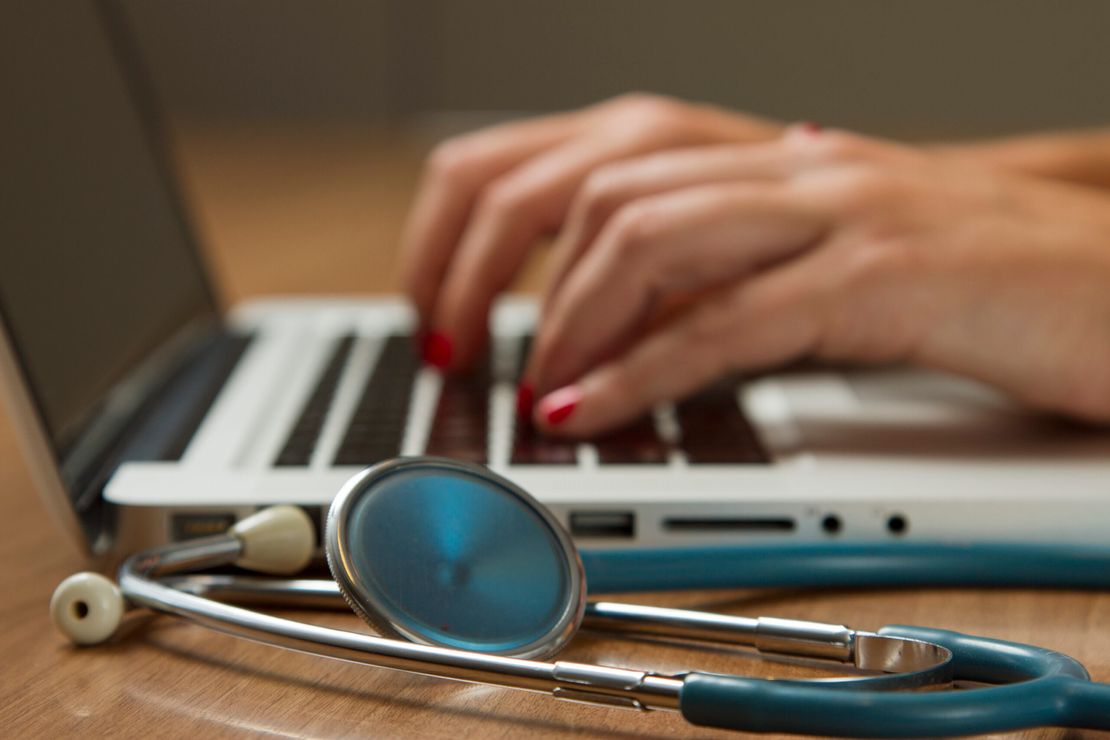We’ve all done it. You’ve probably already done it this week and likely more than once.
We’re talking about downloading images from the internet for use on your company’s website, blogs and social media channels. It’s quick and easy to do – and let’s face it, the results are pretty effective. You type one word into Google Images and you literally have thousands of pictures at your fingertips.
Do you know that using these images for your online business could actually get your business into legal trouble? Most of the images you find with Google or Bing are protected by copyright law, and using them on your website could result in hundreds to thousands of dollars in fines. And it’s not just your website – posting and sharing these images on social media can also cause trouble.
Let’s take a look for example, at our Medical Web Experts home page below.
Like most home pages, we have a mix of stock pictures (highlighted by the yellow and blue arrows) and original image design (highlighted by the red arrow). We’ve purchased and paid designers to make these images, but had we just done a quick Google search, pulled up our favorite images and uploaded them, we’d technically be breaking copyright law too (but we’d never do such a thing!).
So how exactly does copyright law work online, and what media channels does it apply to?
When a person in the U.S. A. creates a piece of work, they’re the automatic owners. We’re talking about any photo, graphic, drawing, etc. that the person who created it uploads to the internet. “Owning it” means that they own the exclusive right to distribute, reproduce, make copies, create new versions, attribute and alter their work.
You, on the other hand, own none of these rights. If you innocently, unknowingly, use a copyrighted image – it could set you back anything up to $30,000. Knowingly using a copyrighted image could cost you a little more – anything up to $150,000. Ouch. If the owner of the image notices you’ve infringed one of their designs online, they’re within their rights to hunt you down and sue you.
“That’s SO UNFAIR! What if I try a cookie recipe recommended by the cookie monster one of my favorite food bloggers and use their image of the finished cookies? (Theirs turned out better than mine!) I attributed them as the photographer– surely that’s ok?”
Actually, no – attribution is nice and all, but in our courts it holds no legal weight. In other words, having written “image by John Doe” or “sourced from www.welovejohndoe.com,” doesn’t mean you’re off the hook. Furthermore, who’s to say that the person you got the infringing image from wasn’t infringing themselves? Maybe they stole the image too (the thief!).
The same goes for sharing and downloading pictures off social media sites. The majority of images hosted on social media sites are infringing. They get away with this because of a little hosting rule called User Generated Content (or UGC). If a social media site hosts their images under UGC, it means that they’re not liable for infringement by their users. If you post a copyrighted image that you found on social media, you’re the one the owner will sue. The golden rule to remember before downloading images for use from social media is: just because you found an image on a social media website, that doesn’t mean that it’s in any way immune to copyright law. Most images on Facebook and Pinterest are there illegally.
But before you stop using other people’s images online for good, there are some instances in which you can use images you don’t own – but it has to be all within the lines of the law.
We’ll be covering safe practices and fair use next in part 2, so stay tuned!


